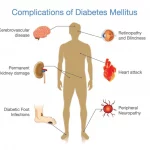Hepatitis C is a liver infection caused by the hepatitis C virus (HCV). Hepatitis C is spread through contact with blood from an infected person. Today, most of the people become infected with the hepatitis C virus by sharing needles or other equipment wont to prepare and inject drugs.
Symptoms
Long-term infection with the hepatitis C virus is known as chronic hepatitis C. Chronic hepatitis C is usually a “silent” infection for many years, until the virus damages the liver enough to cause the signs and symptoms of liver disease.
Signs and symptoms include:
Bleeding easily
Bruising easily
Fatigue
Poor appetite
Yellow discoloration of the skin and eyes (jaundice)
Dark-colored urine
Itchy skin
Fluid buildup in your abdomen (ascites)
Swelling in your legs
Weight loss
Confusion, drowsiness and slurred speech (hepatic encephalopathy)
Spiderlike blood vessels on your skin (spider angiomas)
Every chronic hepatitis C infection starts with an acute phase. Acute hepatitis C usually goes undiagnosed because it rarely causes symptoms. When signs and symptoms are present, they may include jaundice, along with fatigue, nausea, fever and muscle aches. Acute symptoms appear one to three months after exposure to the virus and last two weeks to three months.
Acute hepatitis C infection doesn’t always become chronic. Some people clear HCV from their bodies after the acute phase, an outcome known as spontaneous viral clearance. In studies of people diagnosed with acute HCV, rates of spontaneous viral clearance have varied from 15% to 25%. Acute hepatitis C also responds well to antiviral therapy.
Causes
Hepatitis C infection is caused by the hepatitis C virus (HCV). The infection spreads when blood contaminated with the virus enters the bloodstream of an uninfected person.
Globally, HCV exists in several distinct forms, known as genotypes. Seven distinct HCV genotypes and more than 67 subtypes have been identified. The most common HCV genotype in the United States is type 1.
Although chronic hepatitis C follows a similar course regardless of the genotype of the infecting virus, treatment recommendations vary depending on viral genotype.
Risk factors
Your risk of hepatitis C infection is increased if you:
- Are a health care worker who has been exposed to infected blood, which may happen if an infected needle pierces your skin
- Have ever injected or inhaled illicit drugs
- Have HIV
- Received a piercing or tattoo in an unclean environment using unsterile equipment
- Received a blood transfusion or organ transplant before 1992
- Received clotting factor concentrates before 1987
- Received hemodialysis treatments for a long period of time
- Were born to a woman with a hepatitis C infection
- Were ever in prison
- Were born between 1945 and 1965, the age group with the highest incidence of hepatitis C infection
Prevention
Protect yourself from hepatitis C infection by taking the following precautions:
- Stop using illicit drugs, particularly if you inject them. If you use illicit drugs, seek help.
- Be cautious about body piercing and tattooing. If you choose to undergo piercing or tattooing, look for a reputable shop. Ask questions beforehand about how the equipment is cleaned. Make sure the employees use sterile needles. If employees won’t answer your questions, look for another shop.
- Practice safer sex. Don’t engage in unprotected sex with multiple partners or with any partner whose health status is uncertain. Sexual transmission between monogamous couples may occur, but the risk is low.
The list of some Hepatitis C medicine:



